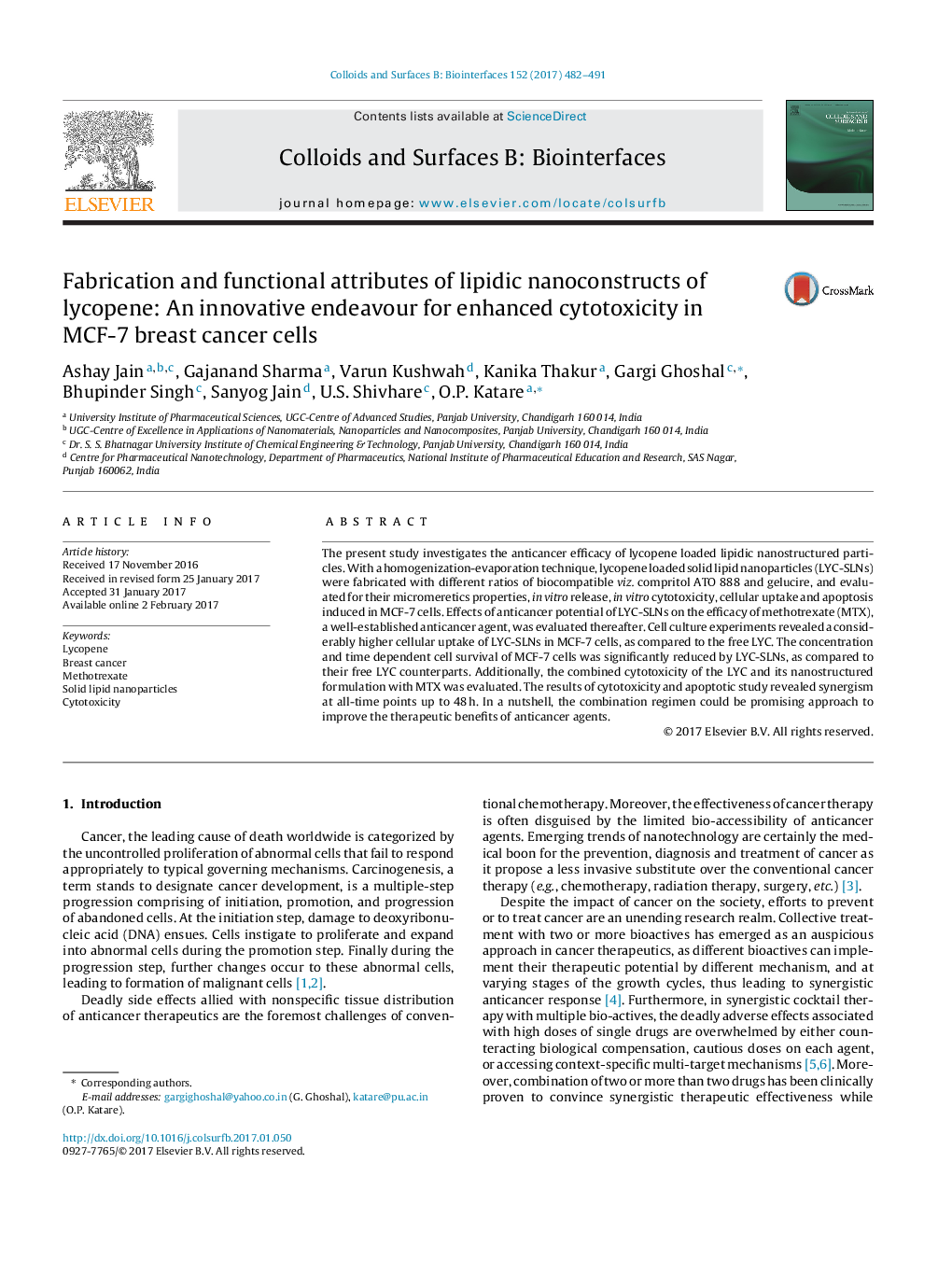| Article ID | Journal | Published Year | Pages | File Type |
|---|---|---|---|---|
| 4983196 | Colloids and Surfaces B: Biointerfaces | 2017 | 10 Pages |
â¢Lycopene-SLNs with improved functionalities of LYC against breast cancer cells.â¢SLNs formulation shown controlled drug release behaviour.â¢LYC Loaded SLNs, showed enhanced cytotoxicity in MCF-7 breast cancer cells.â¢The higher efficacy of LYC-SLNs related to marked uptake in the cells.â¢LYC-SLNs shown adjunct effect with chemotherapeutic agent (Methotrexate).
The present study investigates the anticancer efficacy of lycopene loaded lipidic nanostructured particles. With a homogenization-evaporation technique, lycopene loaded solid lipid nanoparticles (LYC-SLNs) were fabricated with different ratios of biocompatible viz. compritol ATO 888 and gelucire, and evaluated for their micromeretics properties, in vitro release, in vitro cytotoxicity, cellular uptake and apoptosis induced in MCF-7 cells. Effects of anticancer potential of LYC-SLNs on the efficacy of methotrexate (MTX), a well-established anticancer agent, was evaluated thereafter. Cell culture experiments revealed a considerably higher cellular uptake of LYC-SLNs in MCF-7 cells, as compared to the free LYC. The concentration and time dependent cell survival of MCF-7 cells was significantly reduced by LYC-SLNs, as compared to their free LYC counterparts. Additionally, the combined cytotoxicity of the LYC and its nanostructured formulation with MTX was evaluated. The results of cytotoxicity and apoptotic study revealed synergism at all-time points up to 48Â h. In a nutshell, the combination regimen could be promising approach to improve the therapeutic benefits of anticancer agents.
Graphical abstractDownload high-res image (169KB)Download full-size image
